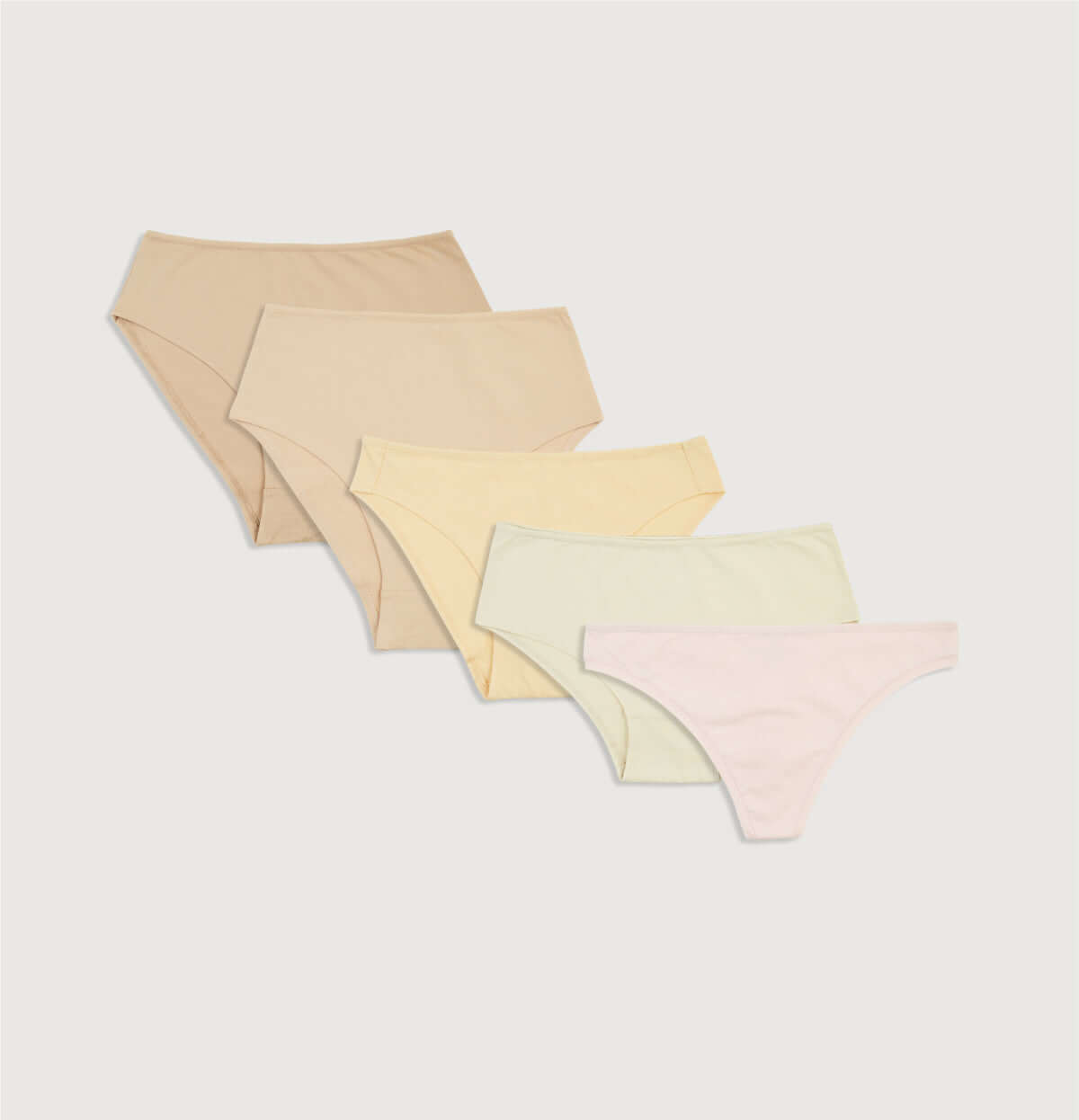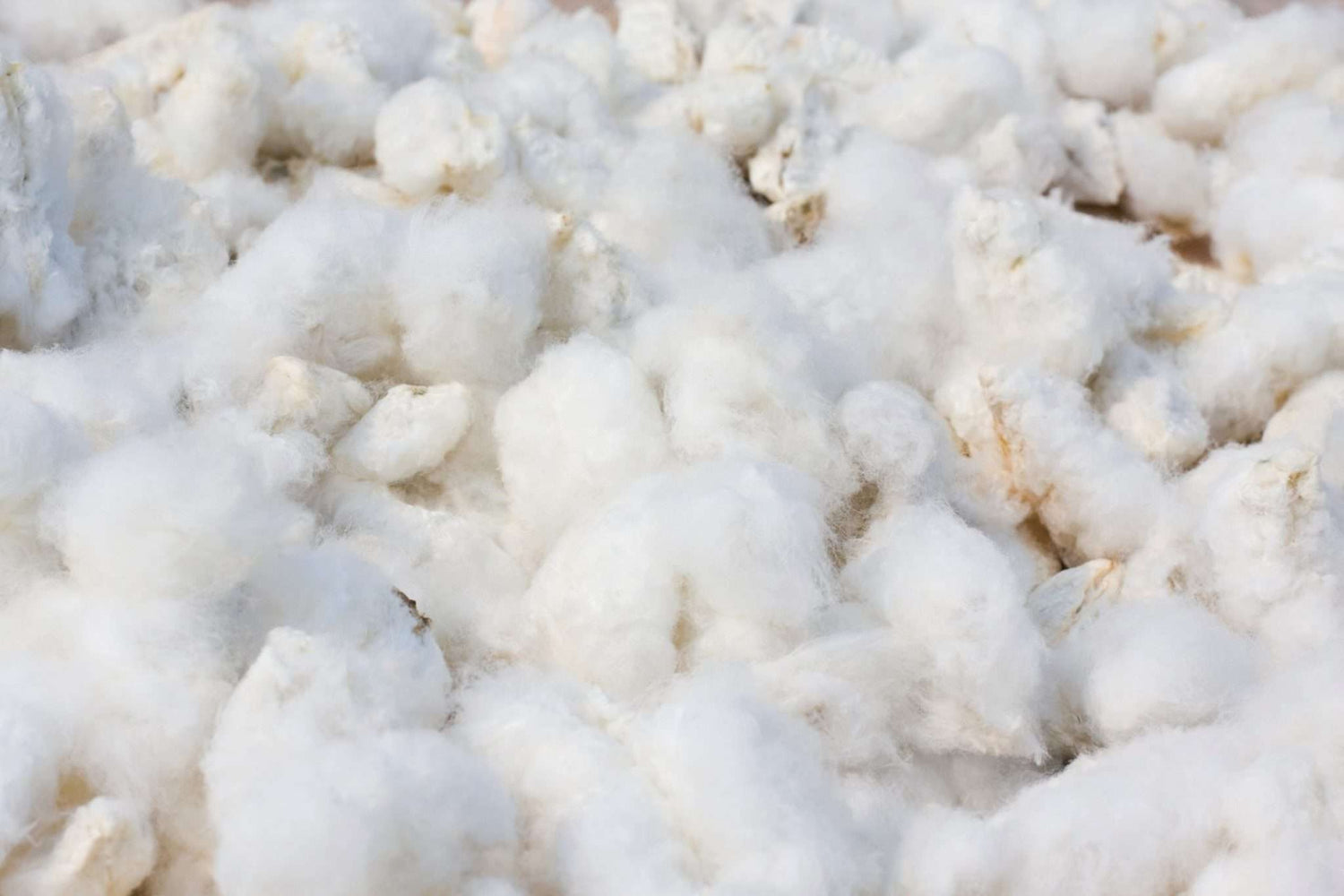Cotton is a fibrous plant and is often used to weave soft, breathable fabrics.
In recent years, organic cotton has entered the spotlight due to the growing demand for ecological farming, which emphasizes reducing damage to the soil and the environment and creating healthier products for humans. Organic cotton is essentially cotton grown from non-genetically modified plants and without the use of synthetic chemicals.
Why is organic cotton more environmentally friendly?
- Water - Organic cotton is irrigated with drip irrigation, thus saving up to 91% of water in the growing process, compared to massive irrigation that damages the soil in growing conventional cotton .
- Pesticides - Using biological pesticides, the crop and farmers are not exposed to hazardous chemicals.
- Production - The processing and manufacturing processes are natural and without the use of polluting chemicals. The final product is a hypoallergenic fabric, suitable for sensitive skin, intimate areas and toddlers, and of course better for all of us.
- Soil - In organic cotton farming, soil is replaced at the end of each crop to allow the soil to renew itself, so it remains nutritious and is not destroyed.
In contrast to conventional cotton farming, where the same soil is used over and over again, the nutrients present in it are destroyed. In addition, pesticides cause unhealthy crops and damage neighboring lands. - Weeding - In organic cotton, the plucking is done manually. This method saves wear and tear and keeps the fibers longer, softer, and more durable.
- Fair trade - ensuring that throughout the production chain, the people who work receive fair and humane conditions.
Thanks to all of the above, the footprint of growing organic cotton is smaller compared to other crops.
Why is organic cotton better for you?
Organic cotton is a breathable and moisture-wicking fabric. Our skin, in addition to being the largest organ in the human body, is also considered our "third lung." It is an organ that protects, secretes, absorbs and breathes! Therefore, it is very important to pay attention to what we wrap it in.
The moisture evaporation that organic cotton allows is important to prevent the accumulation of bacteria and fungi that love moist, warm places.
The organic growing process keeps the fabric free of toxins and thus is not harmful to our health, or the health of our skin.
It is especially important when it comes to our intimate areas, which secrete more and the skin is more sensitive, as well as in toddlers and children, whose immune systems are still developing.
Beyond all that has been said, organic cotton makes one of the most pleasant fabrics to the touch! And it also encourages a sustainable economy. Therefore, it is also a pleasant and ecological choice.
What products can you find made from organic cotton?
-
Hygiene - organic cotton pads and tampons.
This is an important point because there are synthetic materials present in tampons and pads today that have been found to be harmful and even carcinogenic.
- Babies - diapers, clothes, activity surfaces
- Household products - organic cotton towels and bedding
- Women - organic cotton lingerie , organic cotton maternity clothes and of course all other clothing.
- Men's underwear made of organic cotton
Today, more people and companies understand the need to use healthier materials for our bodies, our employees, and our planet. The demand for green and organic crops is increasing, and so is the supply. For more companies, it is important to be sustainable and to care for a better future.
At Lilibloom, we have a variety of organic cotton products , with GOTS certification, which confirms that the entire process meets the conditions for organic products, and Fair Trade certification, which confirms that all those involved in the process from beginning to end receive fair working conditions in all respects.






